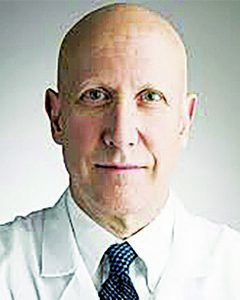
Supplementation is an important part of nutritional intake. The reason is that food in the United States has been rendered nutritionally inadequate due to poor farming methods. Imaging that one orange in 1950 could take as much as 15 oranges today to contain the same amount of nutrients.
The problem is there is so much confusion about nutritional supplements these days. Should I take vitamin C or A or B12 or E or all of them? What about things like selenium and alpha lipoic acid? Are they necessary? Should I take a multi-vitamin? Which one is best?
Marketing and internet-based opinions from every direction have left the casual consumer not sure what to do. It’s about time we straighten out this notion once and for all.
Let’s start with the most important concept about vitamins and supplementation: the only source of nutrition for humans (and animals) is food. That’s right, food. This is easy to understand once we get familiar with the process of vitamin and nutrient absorption.
Vitamins and other nutrients are absorbed throughout our intestines to facilitate a sophisticated process that allows our body to utilize critical nutrition in just the right places. There are multiple processes and co-factors that are required for this system to work properly. Most of the cofactors needed are in the food themselves with a few being made in our body. For example, vitamin C complex contains 12 components and vitamin B complex has 24. Vitamin A complex has a whopping 64 components!
These components have been part of food on earth for more than 100,000 years. Our bodies require these components to recognize, process and utilize nutrients. When we take ascorbic acid as vitamin C, for example, we are only taking 1/12th of the required components (and the least important one at that).
It’s no wonder that the Journal of the American Medical Association published a finding in 2006 that taking the anti-oxidants beta-carotene (vitamin A), ascorbic acid (vitamin C) and alpha-tocopherol (vitamin E) was connected with serious health problems. The negative health results were in every disease category, including melanoma, heart attack/strokes and autoimmune diseases.
These anti-oxidative substances serve as preservatives for plants and fruits to prevent decomposition in an oxygen-rich environment like Earth. If we did not have ascorbic acid, for example, an apple would turn black in a matter of seconds after you took a bite. However, our blood is not 21% oxygen like our atmosphere and therefore, does not go through the oxidative process the same way. In fact, oxygen is the most important human nutrient on earth, so why would we want to suppress it in our body?
Inside the body, oxidation is a process that happens inside our cells, not outside of them. We have very powerful anti-oxidants inside the cells such as glutathione and peroxidases, which prevent excess oxidative stress in cells, where it’s needed. We don’t have this kind of stress outside of cells.
Vitamins and supplements must be derived from whole food sources to be properly recognized, absorbed and utilized by our bodies. Antioxidants and other fractionalized, isolated chemical compounds are little different than other toxic chemicals our bodies need to eliminate. That’s why your urine often looks ‘cobalt’ yellow after consuming them. This is your body eliminating them.
There are plenty of places to find good vitamins and supplements derived from whole food sources. The key is understanding the source. And for that, we need to look at the FDA label and read the ‘other ingredients’ section. If those ingredients are 1) made up of whole foods and 2) the chemical listing is brief with the amount of antioxidants relatively small, the vitamins are probably from a good, usable (able to be absorbed) source. If there is a long list or high dose of chemicals and the ‘other ingredients’ are a small part of the formula, the vitamins are most likely made from chemical sources and risky to consume every day.
Do we need nutritional supplementation? Yes. Just make sure the supplementation is in a form our bodies can actually use: food.
Dr. Michael Forman is a Functional Medicine Physician. He treats patients experiencing diseases with natural medicines. Many of his patients have been able to reduce or eliminate the drugs they have been taking. Copywrite 2018 Dr. Michael Forman All rights reserved
Dr. Michael Forman, DOM
Tel 305 741-2102
Fax 305-503-9669
Total Health Restoration
Skype michael.forman1
www.michaelformandom.com
michaelformandom@gmail.com







Comments are closed.